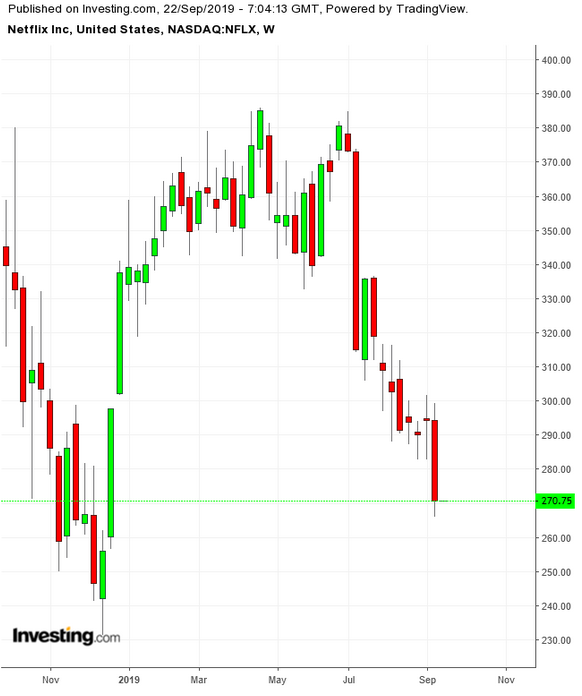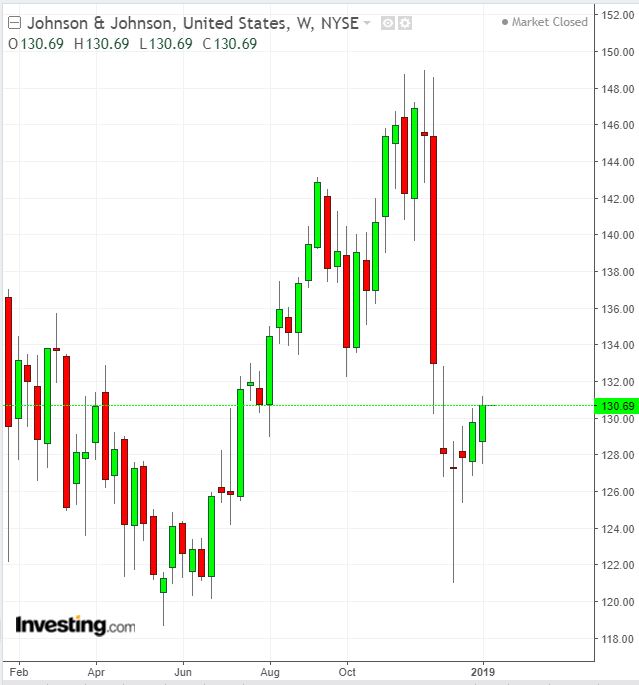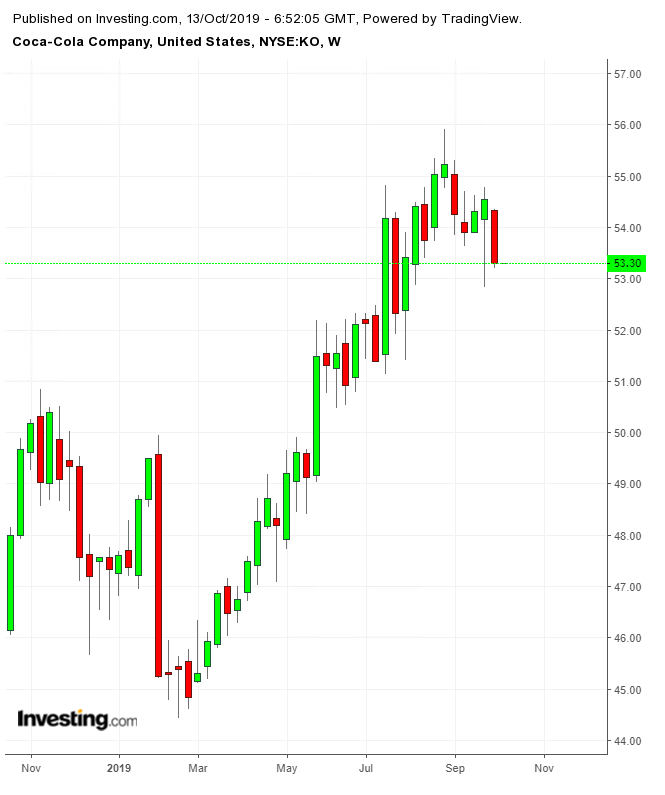Buoyed by a preliminary U.S.-China trade deal on Friday, markets will also be seeing some of the country's major companies release Q3 earnings during the upcoming week. However, expectations for the third quarter are not too high, with analysts projecting U.S. companies to report profits that fell 3% from a year earlier, according to Bloomberg data.
But what’s most important this earnings season is how deep the U.S. industrial slowdown is running, and what executives have to say about the future. It appears that President Trump has provided companies a good reason to be hopeful, by agreeing to the outlines of a partial trade accord with China that he and his counterpart, Xi Jinping, could sign as soon as next month.
Here are three large cap stocks investors will likely focus on next week:
1. Netflix
Global streaming entertainment giant Netflix (NASDAQ:NFLX) will report Q3 earnings on Wednesday, Oct. 16, after the market close. Analysts, on average, are expecting $1.03 profit a share on sales of $5.25 billion.
But the real test for Netflix is to show that its explosive growth when it comes to adding more subscribers is continuing. This is especially critical at a time when a number of deep-pocketed rivals—including Apple (NASDAQ:AAPL), AT&T(NYSE:T) and Disney (NYSE:DIS)—are launching their own services.

Shares of Netflix plunged in July, when the Los Gatos, CA-based company missed expectations for both domestic and international markets, reporting that the number of its paid streaming subscribers in Q2 declined in the U.S., for the first time, when compared to the first quarter. Augmenting that bombshell, Netflix also said it added a net 2.8 million new paid streaming customers globally, while Wall Street expected the number to be closer to 5 million.
That setback pressured Netflix stock, sending it into a downward spiral. Shares have lost more than a quarter of their value in the past three months, closing on Friday at $282.93 after gaining about 1%.
In this environment the stock looks vulnerable. Indeed, many analysts question its upside potential when Netflix will soon face significant, real competition from a variety of media companies all launching their own streaming services at a substantial discount to the fees Netflix is charging.
2. Johnson & Johnson
Even if Johnson & Johnson (NYSE:JNJ), the world’s largest maker of both consumer and pharmaceutical health care products, delivers a blowout quarter when it reports Tuesday, Oct. 15, before the open, investors might still not be delighted. A massive beat won't overshadow the biggest worry currently stalking stakeholders: the outcome of numerous legal battles over the company’s opioid drug, baby powder and other products.

A Philadelphia jury last week ordered Johnson & Johnson to pay $8 billion in damages to a man claiming the company didn't warn male consumers its Risperdal drug could result in breast growth. The case, brought by Nicholas Murray, is one of 13,400 lawsuits related to Risperdal, according to the company's latest SEC filings.
As far as the Q3 earnings are concerned, analysts expect $2 a share profit on $20 billion in sales. Due to concerns over ongoing litigation threats, JNJ shares are underperforming the benchmark S&P 500 this year. The stock, trading at $131.33 as of Friday's close, has barely budged even as the SPX gained 18% in 2019.
This situation is unlikely to change as long as the company continues to deal with this massive number of cases.
3. Coca-Cola
The world’s largest soft drink maker, Coca-Cola (NYSE:KO), is scheduled to announce its third quarter earnings on Friday, Oct. 18, before the market opens. On average, analysts are expecting $0.56 a share profit on sales of $9.45 billion in revenue.

In the second quarter, the beverage giant benefited from higher sales of drinks with less sugar. At the time, the company also updated its forecast for the full year, saying it expects to post organic revenue growth of 5%, up from the 4% target it had issued earlier.
Coke is rapidly diversifying its product portfolio as consumers increasingly turn away from sugary soft drinks. In that regard, the past one year has been a good one for the Atlanta-based beverage manufacturer. It made a $5-billion deal to buy U.K.-based Costa Coffee, giving it entry into the most robust segment of the non-alcoholic beverage marketplace.
Coca-Cola's shares, which closed on Friday at $53.30, are up almost 13% this year. Investors will be eager to find out from its Q3 earnings report if the company is succeeding in its efforts to arrest the slowing soda business while expanding sales of non-sugary products.
